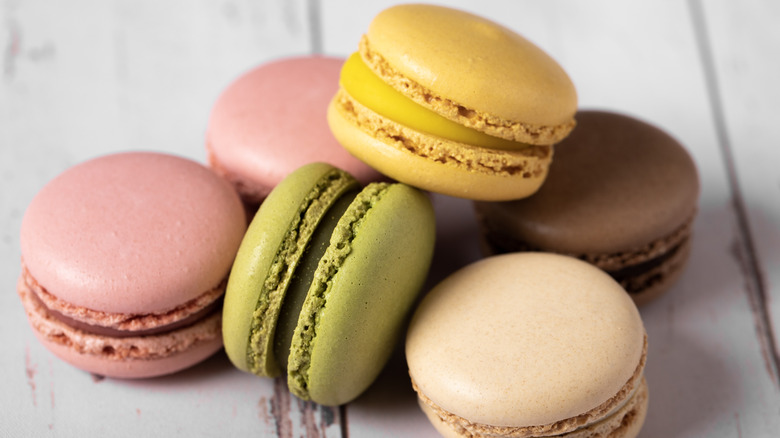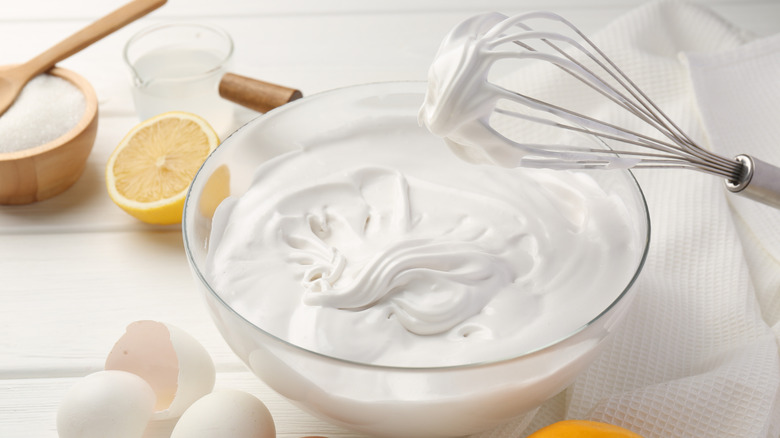The Vinegar Step You Shouldn't Skip When Making Macarons
Macarons are delightfully sweet sandwich cookies that are made from two delicate, meringue-based shells and a filling layer of something like traditional chocolate ganache or buttercream. So the sharp, sour taste of vinegar isn't a natural pairing for the confection's sugary sweetness — that is unless you're cleaning with it. To find out more, Food Republic spoke to Sofia Schlieben, corporate pastry chef at JF Restaurants. Wiping the bowl you whip your meringue in with a bit of white vinegar, she noted, "helps remove any invisible fat or soap residue, creating a pristine surface."
The macaron shell's meringue base, a light and airy whipped foam of egg whites and sugar, is remarkably demanding, with numerous temperature, equipment, sugar, and egg white pitfalls that can ruin your meringue. When you whip the egg whites and sugar, you're adding air, but you're also denaturing the egg white's proteins and introducing hydrophobic amino acids. These hydrophobic amino acids, along with the sugar, help the proteins accumulate on the air bubbles, making them more structurally sound, keeping the meringue fluffy, and preventing it from deflating.
Although simple, that chemical process can be easily disrupted if you don't start with an immaculate surface. "A clean bowl is essential when making meringue," advised Schlieben, "because even a trace of fat or [soap] residue can prevent the egg whites from whipping properly." Any residue left on the bowl will cling to the air bubbles and stop some of the proteins from sticking, thus undermining the meringue's structural integrity. But wiping your equipment with vinegar clears up the problem.
Vinegar's acidity aids in more than just cleanliness
While there are some kitchen surfaces you shouldn't clean with vinegar, the rise in popularity of this pantry staple as a cleaning product stems from its acidity, which makes it so effective. Vinegar typically has a pH of between 2.2 and 3, which means it is destructive to most bacteria. More importantly, it isn't harsh enough to harm the materials it cleans, but can still dissolve residue. Vinegar will break down the oils, fats, and soaps clinging to your mixing bowl so that they don't interfere with your meringue. "In professional kitchens, this step isn't needed since [the] equipment is thoroughly sanitized," Sofia Schlieben informed us, "but for home bakers, it's a simple way to control environmental factors and set yourself up for success."
The acid in vinegar has another benefit for meringues. A very small amount of acid can make the meringue even more stable, as it prevents the protein network from becoming too compact and the meringue from being over-whipped or deflating. Many macaron bakers add a little cream of tartar, but a tiny amount of vinegar will accomplish the same thing.


